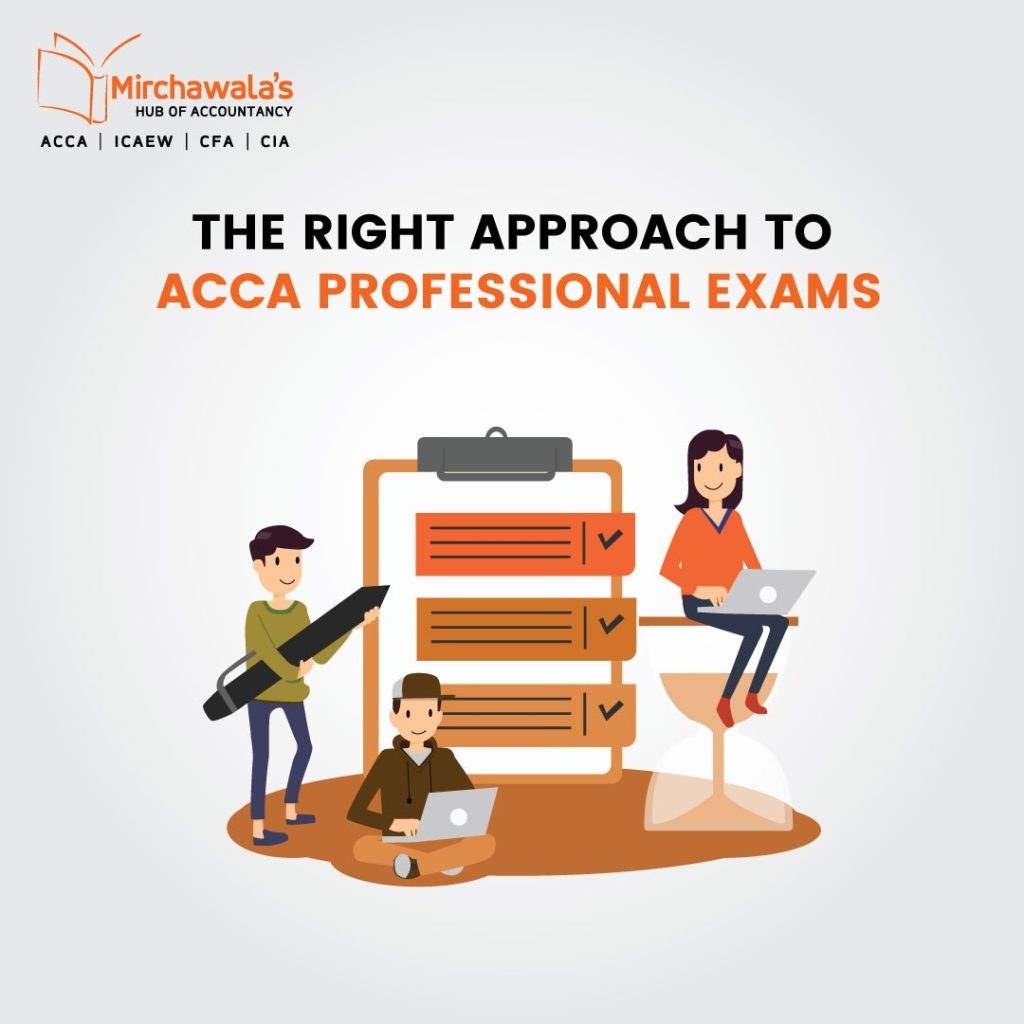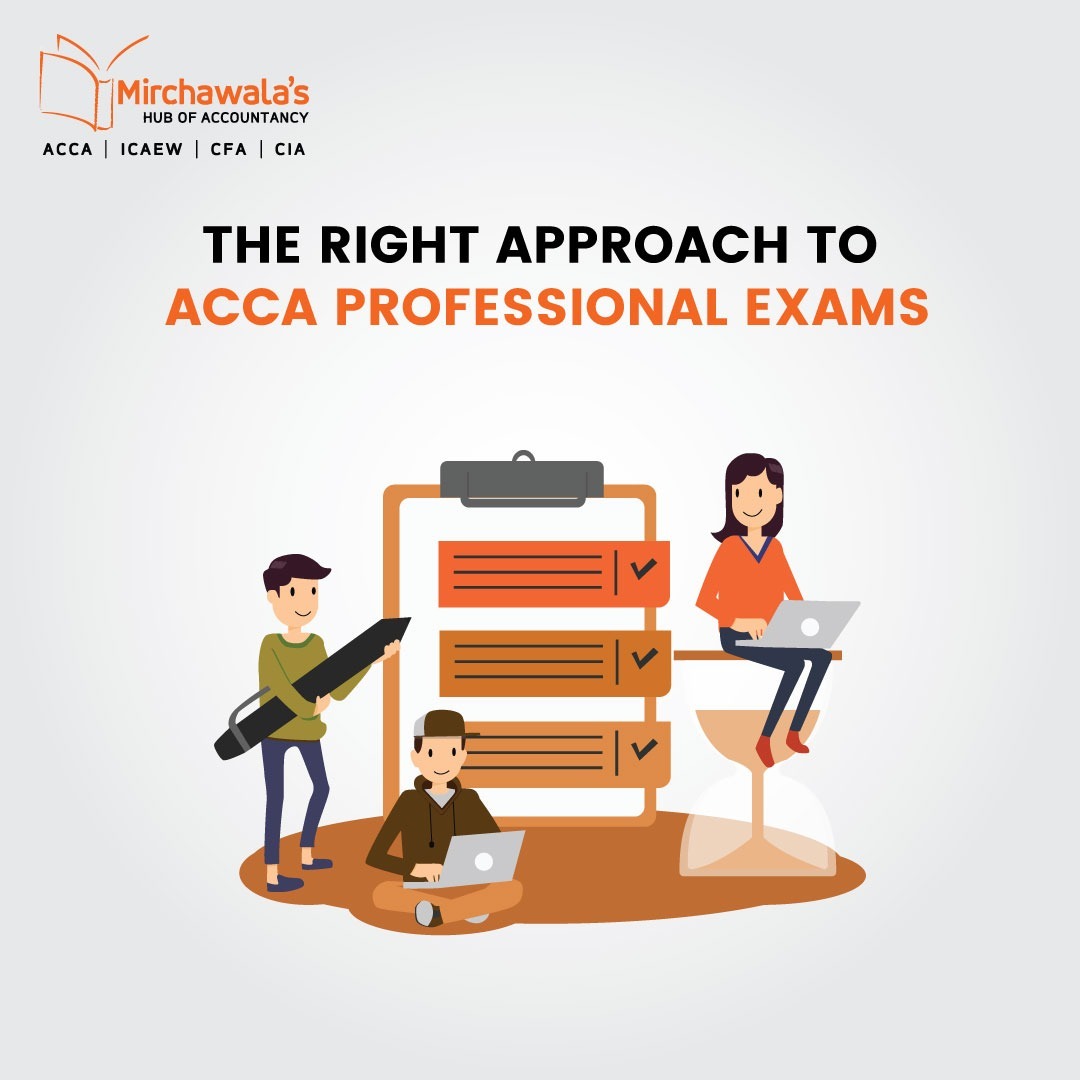
\First of all, geeing on successfully passing the ACCA Applied level exams! That is a great accomplishment. But as you celebrate this achieve, you’ll realize that you’re about to embark on more difficult, professional-level terrain. At this point, you might be wondering, “What Order Should I Take My ACCA Professional Examinations?”
Do not be frightened. You have a strong foundation and are well-positioned to achieve more ACCA victories with strategic planning.
The first issue is to select the order in which to take your professional exams. We will start by going over six important guidelines to help you make decisions. Next, we will discuss each professional paper and how it relates to the foundational assignments you’ve finished.
Consider the ACCA Exam Format
There are four sections, or levels, to the ACCA syllabus. There are multiple numbers of papers at both the Fundamental and Professional Levels, for a total of 13 papers.
The exams at the Fundamental level are intended for students who lack the necessary training or experience. These students must pass every paper in the Fundamental Level to be eligible for ACCA.
The three ACCA levels are as follows:
Applied Knowledge Level
Business and Technology – BT
Management Accounting – MA
Financial Accounting – FA
Applied Skill Level
Corporate Business law – LW
Taxation – TX
Performance Management – PM
Financial Reporting – FR
Financial Management – FM
Audit and Assurance – AA
Strategic professional level
Strategic Business Leader – SBL
Strategic Business Reporting – SBR
Optional papers – two of which should be selected
Advanced Financial Management – AFM
Advanced Taxation – ATX
Advanced Performance Management – APM
Advanced Audit and Assurance – AAA
Quick Overview on ACCA Exam Cycles
Every year, ACCA conducts four exam cycles which last five days in March, June, September, and December.
You can take as many as four examinations in a session with ACCA, and you can take as many as eight separate exams in a calendar year.
Both computer-based and paper-based forms are used for the ACCA tests. Multiple-choice and scenario-based questions are included in both of these formats.
Students enrolled in the first seven papers of the Foundation Level and Applied Knowledge Level exams can also take On-Demand computer-based exams. Before submitting an application for the On-Demand CBE, confirm that you are currently a registered member of the ACCA.
The Right Order to Take ACCA Exam
You can decide how many examinations you want to take each cycle because there are four exam cycles per year. There are three main options for exam scheduling.
Two examinations in each cycle, twice a year
You have the option to take two examinations twice a year, in June/December or March/September. You’ll have lots of time to study for the next examinations now. Additionally, you’ll learn about past exam outcomes, providing you ample opportunity to reapply.
One exam every cycle, four times a year
Each exam cycle allows you to sit for one exam, which gives you plenty of time to study and ace that specific paper.
You can have enough time to prepare if you study a single subject for three months straight. This approach is really helpful, particularly if you are getting ready for exams at a higher level, some of which get harder as you go.
Give Your ACCA Exam with a Flexible Approach
This adaptable strategy will benefit you if you have significant events or busy periods at work coming up. Two examinations in March, one each in June and September, and one more exam in December are all options for you to take. Alternatively, you can completely skip a test cycle. But just make sure you try to take four examinations year.
What aspects of Exam Order should you take into consideration?
Let’s lay down the facts before you choose the order:
You can attempt the papers in any order within each module, but while sitting the examinations, you must adhere to the ACCA’s prescribed modular order.
There are three modules in the ACCA, and as long as you take exams in the prescribed order, you are not required to attempt the papers in that order. Put another way, you can take these modules’ exams in any order, but you must advance from the Applied Knowledge Level to the Applied Skills Level. Before moving on to the next module, it would be beneficial if you passed every exam in the previous module.
You might try selecting papers that are cohesive or similar to one another. For instance, you must comprehend financial reporting before beginning the Audit and Assurance paper.
Similar to this, your chances of passing AAA are increased if you pass the Strategic Business Reporting before trying AAA.
Prior to taking the Strategic Professional examinations, we also advise you to complete the Ethics and Professional Skills module. After finishing the Applied Skills course and before starting the Strategic Professional course, the Ethics and Professional Skills module should be finished in roughly 20 study hours.
As an aside, use your professional background, expertise, and real-world experience to your advantage when choosing to take the exam.
Every exam level can be aced in a variety of methods, mostly based on your own preferences.
To effectively retain the information and subjects, you can consider tackling multiple topic papers at once.
One option is to enroll in related courses concurrently, using one paper as a preparation for the other.
You may also proceed using the identical pattern that ACCA has provided.
Without a doubt, there is a standard approach that benefits everyone. What is beneficial to one person may be terrible for you.
Applied Knowledge Level
Every ACCA student must pass these foundational papers as their first set of exams.
In addition to being the first set, you have the option to take the tests in this module in whatever sequence you like, depending on your aptitude and level of knowledge.
Because they increase your knowledge and proficiency in accounting concepts, management accounting, business technology, financial accounting, and other areas, these three papers are essential to your success. They serve as a basis for the ensuing tests.
We think that learning might be facilitated if you alternate between one theoretical paper and one calculation-based publication.
The papers are not in any particular order, but some students find it simpler to finish FA before trying MA.
Applied Skills Level
When you reach the final paper of the Applied Knowledge Level, you can begin your Applied Skills Level. Exam order is flexible, but it is recommended to take Audit and Assurance after becoming proficient in Financial Reporting.
Based on our own experience, we advise you to start with the Corporate Business Law test. It is advisable to finish it before moving on to other subjects because it doesn’t truly fit into any of the other tests. It also has a high passing percentage.
You may also try your hand at financial reporting while you’re at it. It will be simpler to pass this exam because there are many similarities between this subject and Financial Accounting from the Applied Knowledge level.
Professional Level Strategy
The strategic professional level exams can be taken in any sequence you choose, and you can begin at this level by taking the last Applied Skills level exam.
It is recommended that you complete all of your Applied level tests before beginning the Professional level. This is because the strategic tests need you to demonstrate and use the skill and have a deep understanding of the ideas.
Once more, let’s say that you have had a few exclusions along the route or significant gaps between the two levels. If so, we advise you to practice with practice questions and mock exams before taking the Strategic Professional papers.
What should you do if time is of the essence?
We advise you to take two tests in one sitting if you have the time. In this manner, you can finish all of the papers as quickly as possible. Make the most of your available time and use study materials to get ready before taking any exams.
As with most of us, if you’re pressed for time, we advise doing the foundation-level papers first, then working on one paper at a time. Examine the exemptions to see whether you qualify for any. There isn’t a time limit to complete the tests, however perhaps not for taxes because of the previously stated reasons.

